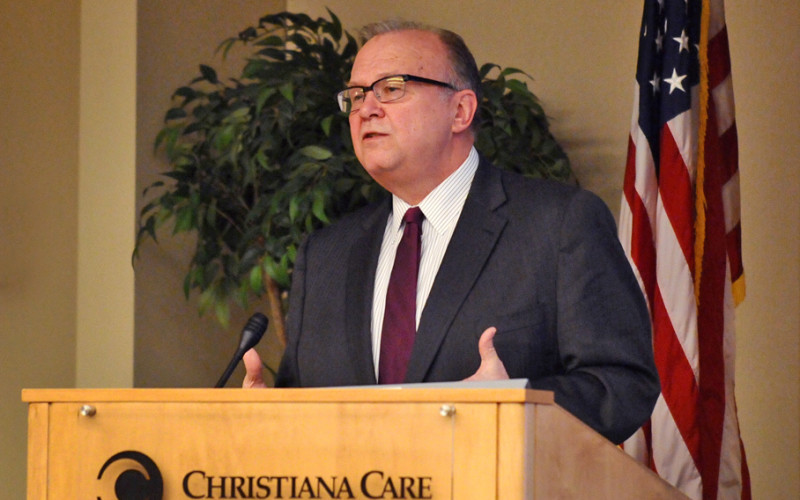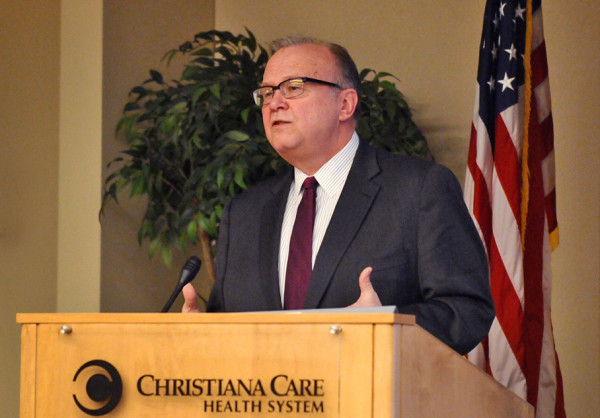National Patient Safety Awareness Week looks at how to address harm


In a keynote address at Christiana Care during National Patient Safety Awareness Week in March, Richard C. Boothman, JD, executive director of clinical safety at University of Michigan Health System, shared his health system’s proactive approach to responding in a timely, thorough, and patient-centered way to unexpected patient harm events.
The pioneering Michigan Model is based on three guiding principles:
- We will compensate quickly and fairly when inappropriate medical care causes injury.
- We will support our staff vigorously when the health care involved was reasonable.
- We will reduce patient injuries (and claims) by learning from our patients’ experiences.
The strategy has produced impressive results. In 2001, Boothman said the health system fielded about 300 malpractice cases. Last year, there were 65.
The priority has to be around the safety and quality of the care we provide
“The priority has to be around the safety and quality of the care we provide,” said Michele Campbell, RN, MSM, CPHQ, FABC, vice president, Patient Safety and Accreditation. “Patients have the right to reasonable care and safety, and to know what happened to them. Caregivers have a right to expect our support. This aligns with our strategy and participation in the CANDOR project to promote communication and optimal resolution when patients are unexpectedly harmed. It advances The Christiana Care Way.“
Helen Haskell of Columbia, S.C., founded Mothers Against Medical Error after her 15-year-old son died of internal bleeding caused by a perforated ulcer, after elective surgery to correct a chest defect. She spoke about patient safety from the perspective of the family.
Her son, Lewis Blackman, was treated over a weekend by staff who failed to recognize signs of clinical deterioration and ignored the family’s request to call in an attending physician when Lewis stopped producing urine and complained of extreme pain. An autopsy revealed that medication had perforated his intestines.
After his death, the hospital apologized and eventually settled with the family without litigation. The family were not made aware of any immediate changes in protocols or procedures.
“We thought there needed to be significant changes,” Haskell said.
Under the Lewis Blackman Act, patients in South Carolina have the right at any time to discuss their care with an attending physician. Upon request, a nurse will call an attending physician or provide a means through which patients can call directly for emergency medical assistance.
“The patient’s voice is the critical element in patient safety,” she said.